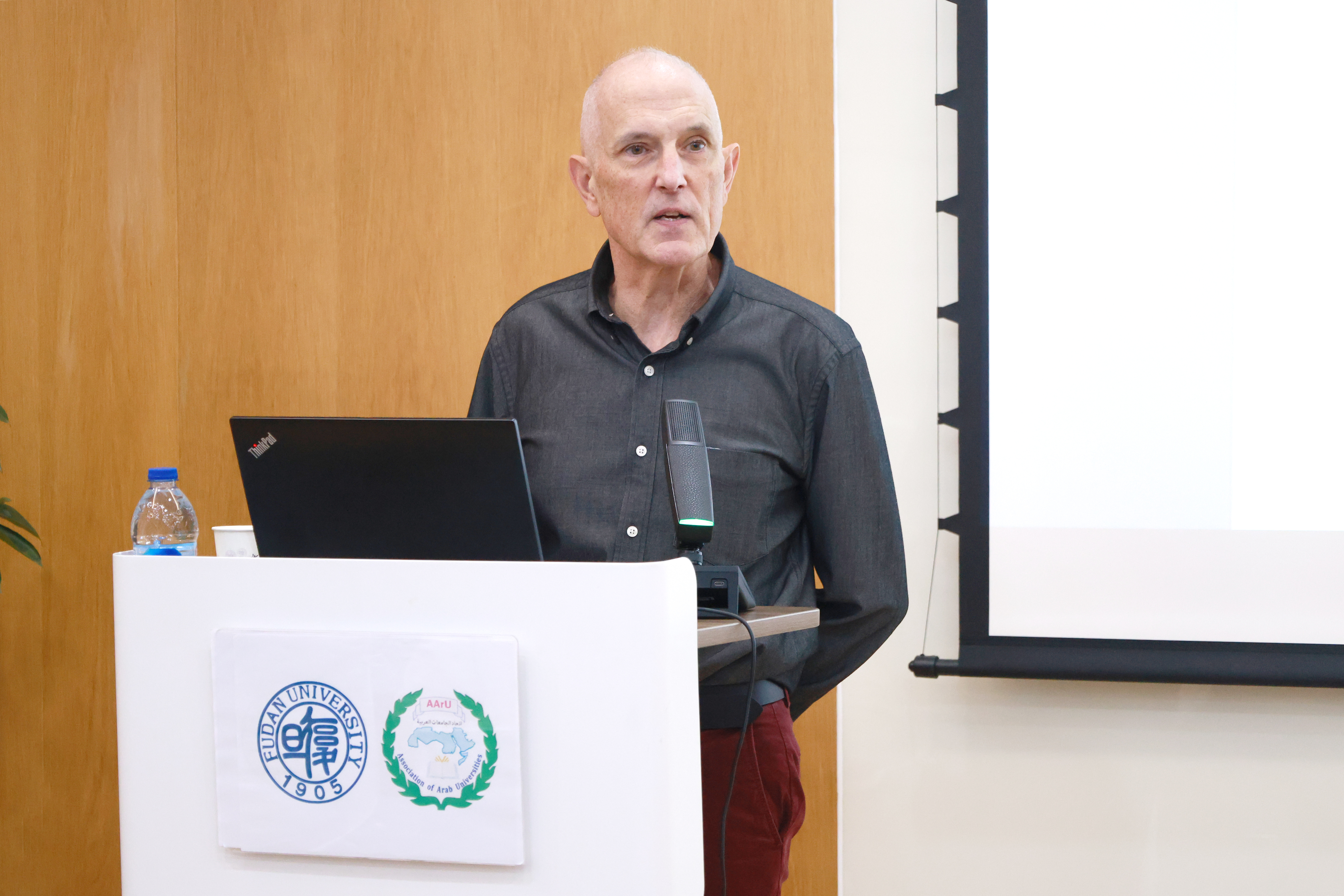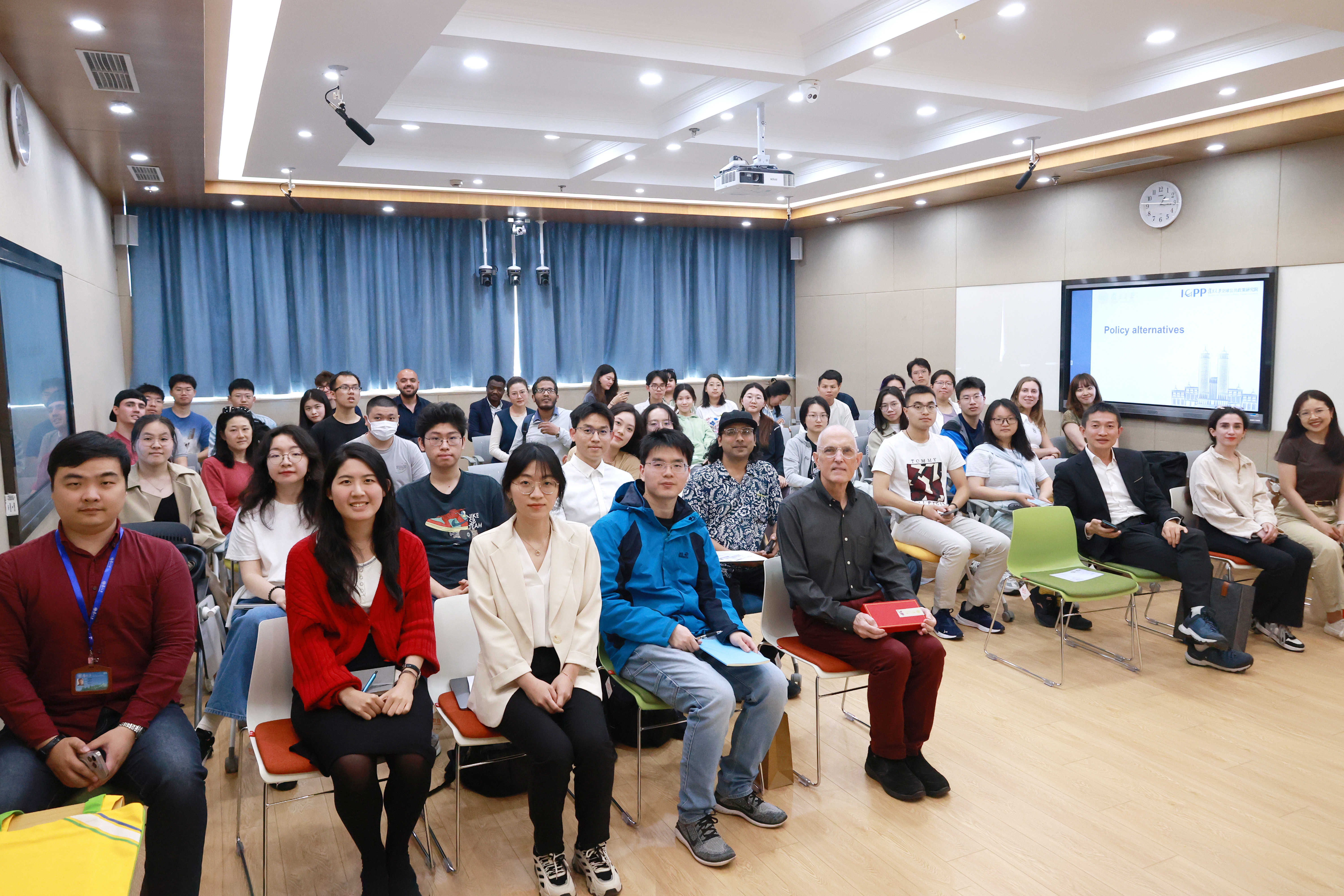Events



On April 9, 2025, the Fudan Institute for Global Public Policy (IGPP) organized the 19th lecture of the Fudan-Arab Lecture Series. Professor Mark Robbins from the University of Connecticut delivered a lecture on the theme of Fiscal and Tariff Policy in the Trump Era. Assistant Professor Xin Ye of IGPP chaired the lecture.
Professor Robbins is the Fudan Chair Professor and Professor Emeritus of Public Policy at the University of Connecticut. His research and teaching focus on public budgeting and finance, with particular emphasis on public preferences regarding taxation and government spending, as well as issues related to public debt.

At the beginning of the lecture, Professor Robbins introduced the topic by examining tariffs as a tool of fiscal policy. Drawing on international trade theory, he explained the economic nature of tariffs and their effects on supply and demand, efficiency, imports, and exports. Building on this, he discussed the legal underpinnings of U.S. tariff authority, detailing how statutory provisions empower the President to impose or adjust tariffs—often under the justification of national security or trade remedy measures.
Professor Robbins then turned to the tariff policies under the Trump administration, outlining the key measures taken by the U.S. to impose tariffs on China between 2018 and 2019. He noted that while these tariffs aimed to reduce the trade deficit and receive domestic industries, empirical research revealed significant gaps between policy goals and actual outcomes. Specifically, the costs of the tariffs were largely borne by U.S. consumers rather than Chinese exporters. Citing model-based analyses from institutions such as the World Bank, Professor Robbins emphasized that large-scale tariff measures could hinder economic growth, raise living costs, and disproportionately burden low-income groups, thereby worsening income inequality in American society. He also examined the complexity of U.S.-China economic decoupling, arguing that despite the imposition of tariffs, deep trade interdependence remains, and the restructuring of global value chains will be a long-term and highly uncertain process.
During the Q&A session, students and faculty engaged in a lively discussion on topics such as the U.S.-China tariff dispute. Professor Robbins emphasized that such disputes place significant strain on national economies and undermine the stability of the global trading system. He stressed the importance of equal negotiation and constructive dialogue in addressing the challenges posed by tariff policies, advocating for collaborative efforts to promote sustainable global economic development.

After the lecture, Assistant Professor Ye presented a commemorative gift to Professor Robbins. The event concluded with a group photo of the faculty and students.